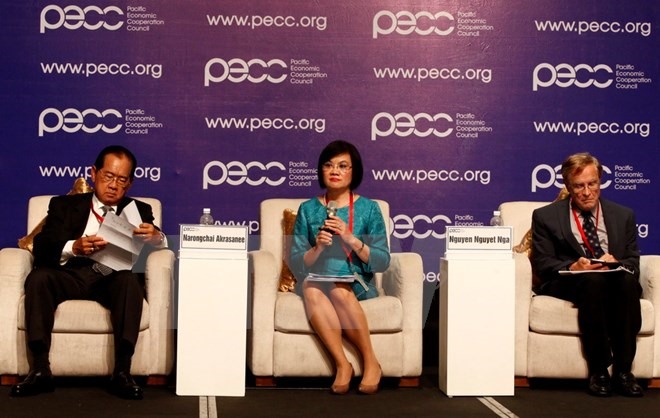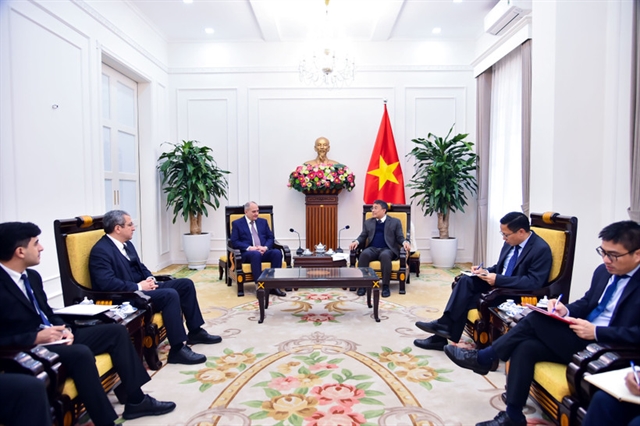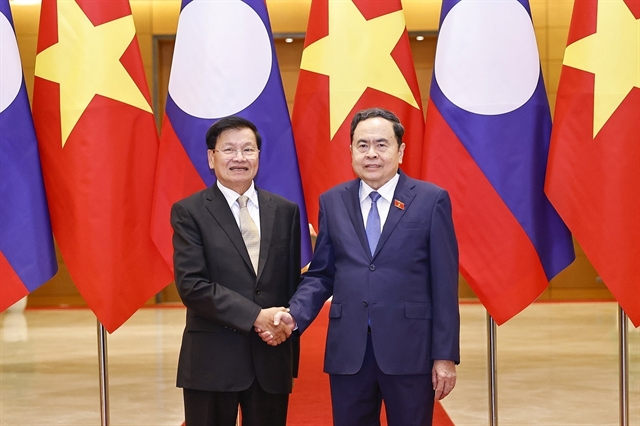 Politics & Law
Politics & Law

The Asia-Pacific region has always been a focus of Việt Nam’s foreign policy, Vietnamese Deputy Prime Minister Phạm Bình Minh said yesterday at the opening session of the 24th Pacific Economic Co-operation Council (PECC) in Hà Nội.
 |
| The Asia-Pacific region has always been a focus of Việt Nam’s foreign policy, Vietnamese Deputy Prime Minister Phạm Bình Minh said yesterday at the opening session of the 24th Pacific Economic Co-operation Council (PECC) in Hà Nội.— VNA/VNS Photo Văn Điệp |
HÀ NỘI — The Asia-Pacific region has always been a focus of Việt Nam’s foreign policy, Vietnamese Deputy Prime Minister Phạm Bình Minh said yesterday at the opening session of the 24th Pacific Economic Co-operation Council (PECC) in Hà Nội.
Minh, who is also the Chairman of the APEC National Committee 2017, stressed that “Being in the heart of the Asia-Pacific region, Việt Nam has continuously promoted comprehensive reform, deepening international integration and active policy implementation and multilateral foreign relations.
“The future of the region is the future of Việt Nam,” he said.
"Looking back over the past three decades, we can be proud of the transformation of Asia-Pacific for becoming a region of peace and a driver of global economic growth and linkage," Minh said.
According to Minh, the region is a testament to the commonwealth that can be achieved through greater economic co-operation and connection, as well as trade and investment liberalisation. “Therefore, the 21st century forecast is that ‘the century of Asia-Pacific’ is not overstated,” he said.
However, Minh said that the region’s prospects also depended on the handling of three major groups of challenges in the short and long term.
The first group includes productivity stagnation; increased inequality in each economy and among economies; population challenges, including aging, poverty, urbanisation and unprecedented impacts of climate change.
The second group includes the degree of readiness for the Industrial Revolution 4.0 and the third group are potential risks of geopolitical conflict and the lack of a viable regional governance mechanism.
Human resources development
In another APEC 2017 event yesterday, Vietnamese Deputy Prime Minister Vũ Đức Đam highlighted that human resources were the centre of development, especially in the digital age.
Speaking at the opening session of the APEC High-Level Policy Dialogue on Human Resources Development in the Digital Age, Đam said that the development of science and technology, particularly information technology, was setting new requirements and creating new conditions for human resource development.
“Technology not only helps increase labour productivity but also connects all people around the world,” he said, adding that it encourages individuals to affirm their personal creativity and value.
The Deputy PM also mentioned the Industrial Revolution 4.0 with IT as its foundation, saying that the appearance of new jobs to replace the old ones requires basic changes in education and training, not only for developing countries like Việt Nam but for all nations.
He stressed the need to ensure equal access to education for all vulnerable groups in society, inspire creativity among children, align theory with practice, connect schools and businesses, and most importantly train people in the necessary skills of a global citizen.
Noting the importance of making forecasts on technological developments, Dr. Alan Bollard, APEC Secretariat Executive Director, said this dialogue would discuss a draft framework on human resources development, the labour market and social welfare for disadvantaged people which will be submitted for APEC higher-level meetings for consideration.
A press conference on the outcomes of the meeting later the day revealed that a framework on human resources development in the digital age was adopted.
“The framework proposes a group of suitable policy orientations and measures to support the APEC member economies in preparing labourers for joining the employment market amid opportunities and challenges from the Industrial Revolution 4.0, said Deputy Minister of Labour, Invalids and Social Affairs Doãn Mậu Diệp.
The specific objectives of the framework are to provide high-level policy orientations to strengthen regional collaboration in human resources development in the digital age.
It also aims to identify and implement activities in priority co-operation areas where APEC can contribute supplementary value such as the future of work in the digital age and labour market policies, education and vocational training, and social security.
The representatives from the 21 APEC economies proposed implementing the framework between 2017 and 2025. — VNS





 Brandinfo
Brandinfo